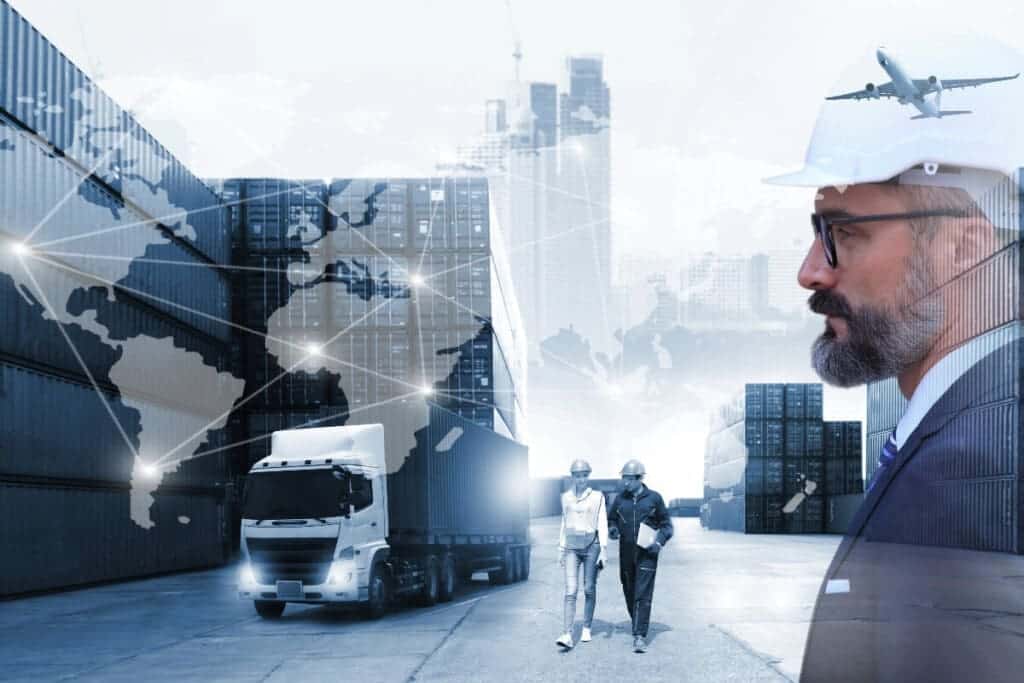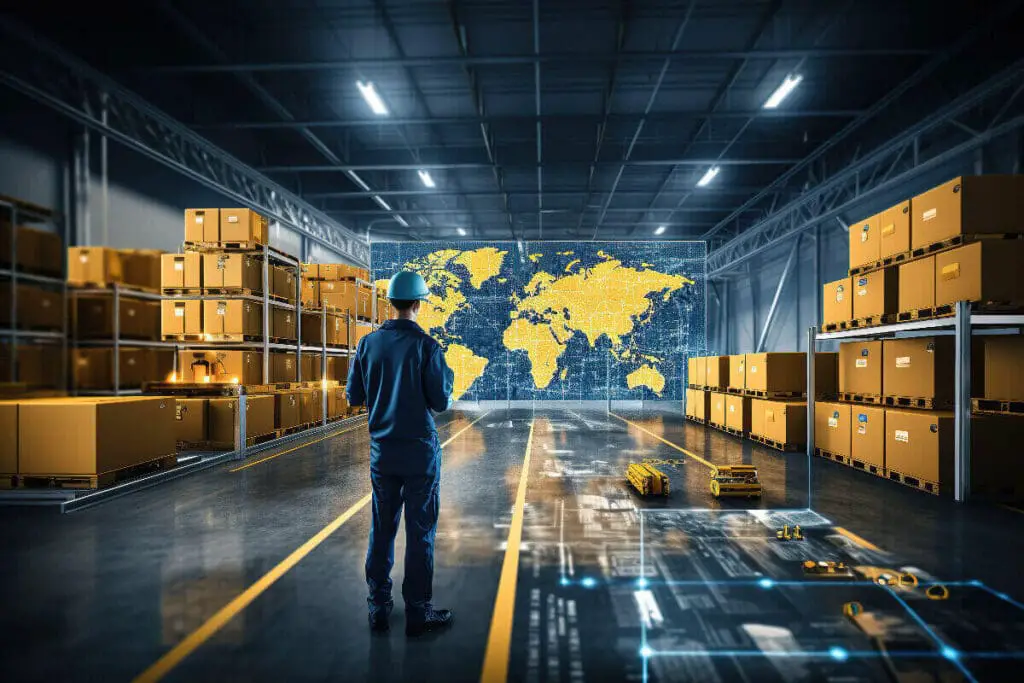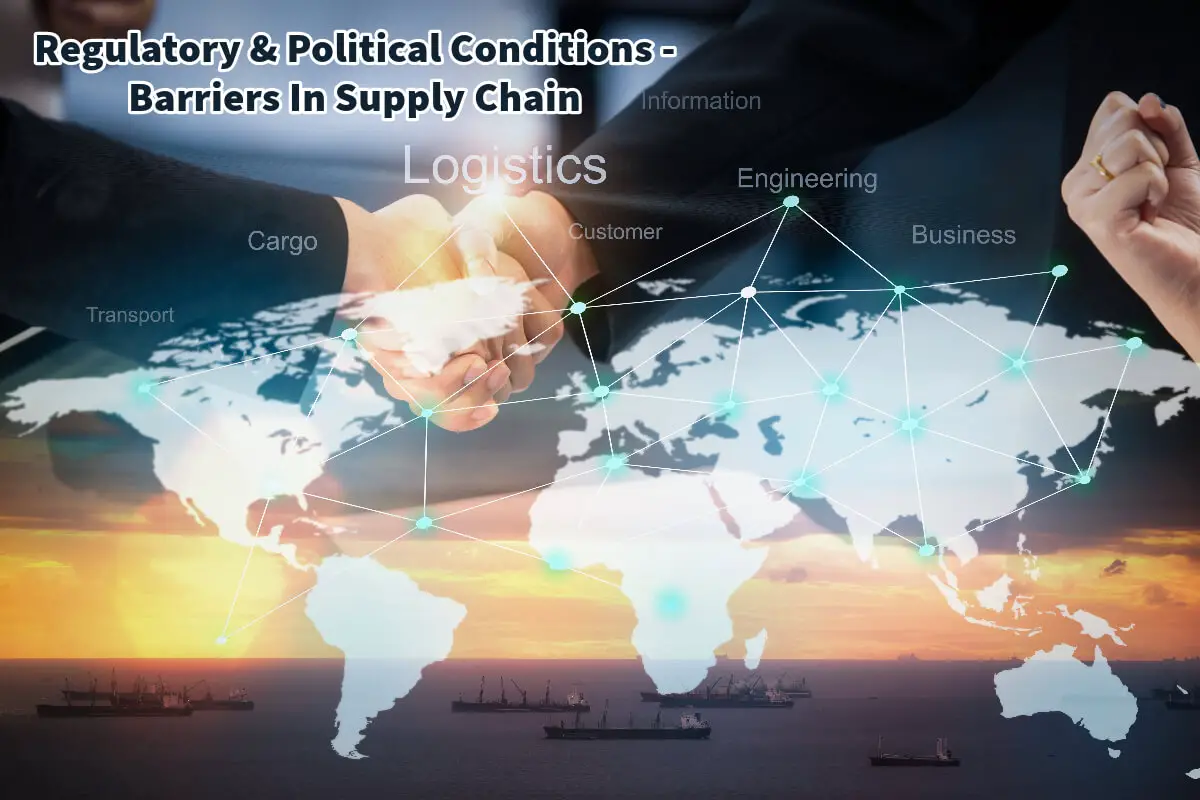Countries establish specific trade regulations to monitor and control their trade practices. Often, these rules can be swiftly implemented, challenging importers and exporters to adapt promptly.
The methods countries employ vary, including the imposition of import quotas, non-tariff barriers, currency controls, trade embargoes, intellectual property rights protections, and other localized mandates. Let’s delve deeper into each of these elements in the context of the global trade landscape.
Table of Contents
- How Regulatory And Political Conditions Can Create Barriers In Supply Chain Management
- What Does This Mean For Global Supply Chain Management?
- Global Supply Chain: The Lifeline Of Modern Economies And Its Pivotal Role In Economic Prosperity
- Related Content
How Regulatory And Political Conditions Can Create Barriers In Supply Chain Management
Supply chain management (SCM) has always been a dynamic, intricate operation, with numerous stakeholders collaborating across borders. As goods flow from one point to another, several external factors can affect this movement.
One of the significant factors, often overlooked, is the regulatory and political environment in which SCM operates.

Government regulations, motivated by political, economic, or even sociocultural factors, can act as barriers to trade with another country. This piece aims to show how governments set up regulations that hamper free trade and what it signifies for global businesses.
Tariffs
Tariffs are taxes or duties imposed on imported goods. Governments may impose tariffs to protect domestic industries from foreign competition. Although these can generate revenue, they can also increase the cost of imported goods, making them less competitive in the domestic market.
Import Quotas
An import quota restricts the quantity of a particular product that can be imported over a specified period. Like tariffs, they protect domestic producers but can limit consumers’ choices and raise prices.
Non-Tariff Barriers (NTB’s)
These are restrictive regulations or conditions set by governments that don’t involve direct taxes. Examples include:
- Licensing requirements
- Standards and certifications for product quality, safety, or environmental impact
- Complex customs procedures
- Restrictions based on origin
Currency Controls
Some governments restrict the flow of their national currency across borders or manipulate exchange rates to provide domestic industries with a competitive advantage.
Trade Embargoes
This is a complete ban on trade with a particular country, often driven by political disagreements. For supply chains, this means a sudden stop in the flow of goods, severely affecting industries relying on products or raw materials from the embargoed nation.
Intellectual Property Rights (IPR) Protection
Inconsistencies in IPR protection across countries can create barriers. If a country has weak IPR laws, businesses might hesitate to trade high-tech goods or innovations, fearing counterfeiting or infringement.
Local Content Requirements
Some governments mandate that a certain percentage of a product’s value should be sourced from domestic suppliers. This forces companies to use local suppliers over potentially more efficient or cheaper foreign ones.
What Does This Mean For Global Supply Chain Management?
Various trade regulations are crucial to the global supply chain for several reasons. They complicate global supply chains and processes, leading to situations where certain entities can’t export or sell to other countries.

Continue reading as we discuss how these regulations can negatively impact the supply chain.
Reduced Efficiency
With tariffs and quotas, companies might find it less cost-effective to produce goods in countries where they can harness economies of scale. This breaks the efficiency that comes with specialization.
Increased Costs
Tariffs increase the cost of imports, which can be passed on to consumers, making products more expensive.
Supply Chain Disruption
Measures like trade embargoes can force companies to reroute their supply chains, leading to delays, increased costs, and potential contract breaches.
Shift In Trade Routes
If one country imposes barriers, companies might shift to sourcing products from a more trade-friendly country, changing global trade dynamics.
Competitive Disadvantages
Companies operating in countries with stringent regulations might find themselves at a competitive disadvantage compared to those in more lenient environments.
While governments might impose trade barriers for various reasons, ranging from protecting domestic industries to political power plays, these barriers can have profound implications on global supply chain management.
Companies must be agile, diversifying their supply sources and continuously monitoring the regulatory landscape to navigate these challenges effectively.
Global Supply Chain: The Lifeline Of Modern Economies And Its Pivotal Role In Economic Prosperity
The global supply chain is a linchpin for most world economies, underpinning the intricate web of production, trade, and consumption that drives global economic activity. Its importance cannot be overstated for several reasons:

Economic Integration
The global supply chain facilitates economic integration between countries. By allowing goods and services to flow freely across borders, economies can leverage comparative advantages, meaning each country specializes in producing goods and services in which they are most efficient.
Consumer Benefits
With a globalized supply chain, consumers can access a diverse range of products year-round. Whether it’s fruits from a different hemisphere or electronics manufactured overseas, consumers enjoy more choices and often lower prices.
Efficiency And Cost-Reduction
By sourcing materials and manufacturing in areas where costs are lower or where expertise is specialized, companies can produce goods more efficiently and at reduced costs. This benefits businesses and consumers who pay lower prices for goods and services.
Economic Growth And Employment
Trade and the movement of goods across borders create jobs. From logistics and transportation to sales and service, millions of jobs worldwide depend on the functionality of the global supply chain.
Risk Diversification
Relying on a single domestic market or supply can be risky. By diversifying sources of materials and markets for goods, companies can spread risks. For example, if there’s a natural disaster or political upheaval in one region, the supply chain can be rerouted or adjusted to minimize business interruptions.
Technological And Knowledge Transfer
The global supply chain also facilitates the exchange of technology and expertise. This transfer helps countries accelerate their development processes and promotes innovation across sectors.
Competitiveness
Exposure to global markets pushes companies to be more competitive. They adopt better technologies, practices, and strategies to stand out in a crowded marketplace, enhancing productivity and quality.
The global supply chain is a foundational component of modern economies, enabling growth, innovation, and efficient production. Disruptions or inefficiencies in this chain can cascade economies, emphasizing the importance of maintaining and improving global supply chain systems.
If you are interested in seeing how Mondoro can help you with your supply chain – we would love to talk to you about how we can help you and be part of your global supply chain.
Find out more about how Mondoro can help you create, develop, and manufacture excellent home decor and home furniture products – don’t hesitate to contact me, Anita. Check out my email by clicking here or become a part of our community and join our newsletter by clicking here.
Mondoro gives out a FREE Lookbook to anyone interested. You can receive a copy of our latest Lookbook by clicking here.
Listen to our Podcast called Global Trade Gal. You can find it on all major podcast platforms. Try out to listen to one of our podcasts by clicking here.
Subscribe to our Mondoro Company Limited YouTube Channel with great videos and information by clicking here.
Related Content
What Handicraft Products Is Vietnam Known For?
Vietnam is known for its Vietnamese lacquerware production and has a long history in manufacturing ceramics and porcelain. It also has a long history of basket weaving and silk weaving, along with embroidery and horn production.
You can learn more by reading What Handicraft Products Is Vietnam Known For? by clicking here.
How Does Poverty Affect Children’s Education? Helping Students in Vietnam
Children who are struggling with poverty usually have a harder time with education. This lack of education can lead to lifelong struggles and poverty, so education for children is essential.
There are many ways that education can help a child, such as with their nutritional needs, health, disease control, gender equality, and helping the children eventually break out of the poverty cycle.
By clicking here, you can learn more by reading our blog, How Does Poverty Affect Children’s Education? Helping Students in Vietnam by clicking here.
Why Home Decor Matters? 10 Reasons Why Home Decor is Important
Home Decor matters since how our home is decorated can and will affect all aspects of our lives. Our homes show the world who we are and what is important to us. Our home decor can affect our physical and mental well-being. Our homes are also gathering places for our families, friends, and loved ones.
You can learn more by reading our blog, Why Home Decor Matters? 10 Reasons Why Home Decor is Important by clicking here.


